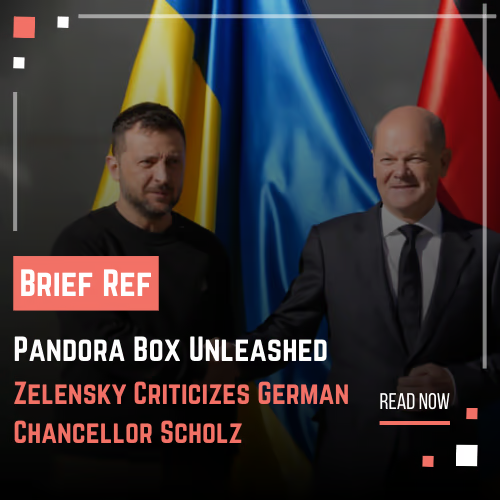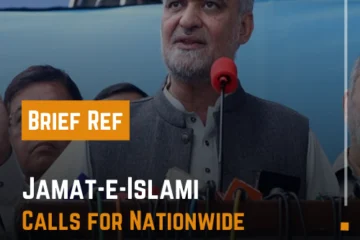Ukrainian President Volodymyr Zelensky has expressed strong concerns over German Chancellor Olaf Scholz’s recent phone conversation with Russian President Vladimir Putin. Zelensky warned that such dialogue could weaken international efforts to isolate Putin amidst the ongoing war in Ukraine, likening the move to opening a “Pandora’s box.” This article unpacks the details of the call, the criticisms surrounding it, and the potential impacts on geopolitics and the war.
What Happened During the Scholz-Putin Call?
On Friday, German Chancellor Olaf Scholz held an hourlong conversation with Russian President Vladimir Putin, marking their first communication in two years. Initiated by Scholz, the call focused on ending the war in Ukraine and urging Russia to withdraw its forces. According to the German government, Scholz emphasized the need for a “just and lasting peace” and reaffirmed Germany’s commitment to supporting Ukraine against Russian aggression.
The Kremlin’s summary, however, highlighted that any peace agreement must reflect “new territorial realities” and address Russian security concerns. These terms, commonly used by Putin, signal Russia’s unwillingness to relinquish occupied Ukrainian territories.
Why Did Scholz Call Putin?
Facing a snap election on February 23, Scholz is under pressure from both ends of the political spectrum in Germany. Populist parties critical of the government’s stance on the war have demanded increased diplomacy with Russia. Analysts suggest Scholz’s call was partly a domestic move to demonstrate efforts toward peace to his electorate.
Western diplomats, however, have criticized the timing of the call. The election of Donald Trump as the next U.S. president has introduced uncertainty about continued Western support for Ukraine. Some fear that Scholz’s outreach could signal cracks in the West’s unified stance against Russia.
How Did Zelensky and Allies React?
Zelensky strongly condemned the call, arguing that it offers no progress toward a “just peace.” In his nightly address, he stated, “This is exactly what Putin has been wanting for a long time: to weaken Russia’s isolation and conduct negotiations that lead nowhere.”
Other European officials echoed Zelensky’s concerns. A Western diplomat remarked, “It sends a bad signal, especially after Trump’s election,” raising fears that Russia could use such calls to legitimize its actions and portray the West as divided.
What’s Next for Germany and Ukraine?
Scholz plans to brief Ukraine, NATO, and European Union leaders on the outcome of the call. While Scholz pledged continued support for Ukraine, including €15 billion in financial and military aid, the conversation has sparked debate within Germany about the nation’s long-term strategy.
Ukraine, meanwhile, faces escalating challenges on the battlefield. With limited arms and personnel, it is contending with steady Russian advances in the east. Compounding the issue, U.S. aid to Ukraine’s war effort remains uncertain following Trump’s election victory.
Where Does This Leave the War?
The phone call underscores a growing divergence in how Western leaders approach the conflict. While Scholz’s effort to engage Putin may be seen as a step toward diplomacy, critics argue it risks undermining Ukraine’s position and emboldening Russia. Moreover, the Kremlin’s suggestion of potential energy deals with Germany raises questions about Europe’s stance on Russian resources.
As the war continues into its third year, these developments highlight the fragile balance of diplomacy, military strategy, and domestic political pressures shaping the global response.
Key Players in the Debate
- Volodymyr Zelensky: President of Ukraine, critical of Scholz’s call with Putin, calling it counterproductive to Ukraine’s goals.
- Olaf Scholz: German Chancellor facing domestic and international scrutiny for initiating dialogue with Putin.
- Vladimir Putin: Russian President, using the call to emphasize his conditions for peace, including territorial gains.
- Donald Trump: Recently elected U.S. President, casting uncertainty over continued American support for Ukraine.
What Are the Potential Impacts?
- On Ukraine: Risk of weakened international solidarity and delayed peace resolutions.
- On Russia: Possible narrative victory, signaling cracks in Western unity.
- On Germany: Domestic political implications as Scholz navigates elections and public sentiment.
- On Global Diplomacy: Increased tension among NATO allies regarding the best path forward.
What’s Next?
With world leaders set to meet at the upcoming G20 summit in Brazil, international focus will likely shift toward coordinated responses. Meanwhile, Germany’s domestic elections and Trump’s inauguration could reshape the geopolitical landscape, adding layers of complexity to an already multifaceted conflict.




